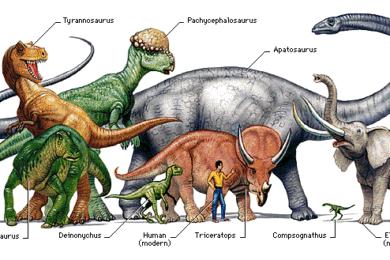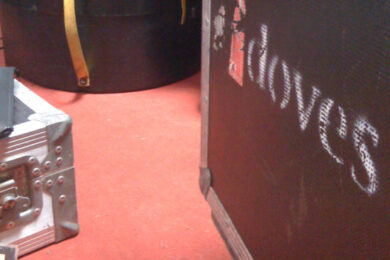Portrait courtesy of Ester Segarra
Time To Die, the new album by Electric Wizard, has been released to widespread critical acclaim. It is nasty, brutal, and actually quite long. Liz Buckingham, guitarist and co-songwriter since 2004’s We Live, explains the influence of the notorious Ricky Kasso on the obsessive mindset that produced this ‘cursed’ record, and opens up about a year of crisis that left the band "really, really fucking angry".
How do you see your role in Electric Wizard? Has it changed since We Live?
Liz Buckingham: I see my role as partner in crime and guardian of the original vision. And I don’t think it has changed at all. I think it’s pretty much the same as it’s always been. When I joined, I felt that it was to add to the guitar sound and the creative vision. I came in wanting to enhance all that was Electric Wizard.
Is Time To Die on a continuum with Witchcult Today and Black Masses, or does it reach back to Come My Fanatics…. and Dopethrone?
LB: I think it’s got a bit of both ‘eras’. The earlier being more about the same attitude as opposed to musically. Musically, the band is always going to be a continuation: it’s got its own energy and it keeps evolving. We can’t really control it. But I do think there is a lot of anger and frustration on this album, which was apparently the catalyst of both Come My Fanatics…. and Dopethrone, so I think that comes across as well, and some people will pick up on that.
Had Mark Greening’s return to the band changed the song-writing dynamic?
LB: Not really. Half the songs were written before he joined. Justin and I still write together in the same way we have for the past ten years. We generally work on stuff and ideas in isolation then Justin presents it to the rest of the band at rehearsal and the parts get worked out with the drums and bass, then we all jam it out. This way of working is the best for us, especially when Mark joined, with his attitude towards women and Americans. So, definitely in this situation in particular, it really worked out for the best to work this way. Mine and Justin’s goal is to make the best possible music we can, however we can. We always put the band first, even to personal detriment. It’s an obsession that not many have shared with us, and it’s why Justin and I are the creative team that we are.
Would you say that as a creative partner you’ve developed the overall atmosphere of the music?
LB: I think I’ve added to it certainly and probably clarified certain aspects. It’s developed on its own really.
Is Ricky Kasso the personification of the Electric Wizard ethos?
LB: Ha ha! Yes. In a lot of ways. Drugs, woods, satan, killing, metal… When I was a kid, that stuff happened right near where my family was living at the time. I remember reading about it in the newspaper in the back of my dad’s car. That picture of Ricky in his AC/DC shirt, the whole satanic panic. I was totally obsessed and continued to be for many years. Turns out, Justin pretty much was the English Ricky when he was a teenager, he just didn’t actually kill anyone. But eerily similar situations happened. We like to think that Ricky would have been into Electric Wizard and would have identified with the lyrics: the outsider, the alienation.
Has Krautrock been an influence on Time To Die?
LB: Musically, not really – at least not consciously – although we do listen to a lot of Krautrock regularly, so I think it’s always a bit of an influence. Like Amon Düül II, Message, Necronomicon, German Oak, etc. I would say the general spirit and ethos of Krautrock more so. You know, that whole Baader Meinhof era. Detroit was the main influence, and again, mostly its attitude and intent. That whole time of revolution; the music was like an attack against the system, the man, much like Krautrock as well, so I could see why you would ask that.
Is the Detroit influence what drives the pace and sound of ‘Funeral Of Your Mind’, in particular?
LB: Yes, particularly that song. It’s pretty much a tribute to all the bands we were digging at the time. The whole pace and vibe is very different from all of our other songs. I like playing it a lot, it’s a classic dual guitar song. It’s the type of song where every instrument is totally doing its own thing, and it all comes together and you really feel what it’s all about to be in a band. We all like jamming that one.
Does Electric Wizard see itself as part of a peer group? Have you listened to the new YOB and Pallbearer albums, for example, which have been really well-received?
LB: No, I don’t think we have ever felt a part of any peer group, quite the opposite. I have not heard either of those albums. The only recent doom I have heard is the new Moss stuff, which is excellent, I really dig it: proper crypt-like. I’m really particular about my doom, and I still get immense pleasure from the classics, so I don’t feel that compulsion to find a ‘new’ fix all the time. Lately I have been spending more time looking into music I might have missed first time around, or don’t know much about. I’m really the sort of person that prefers discovering old stuff as opposed to new.
Is Electric Wizard a Doom band?
LB: Yes.
Why is death the focus of this album?
LB: It was just our state of mind during the creation of the album. First we just wanted to DIE from all the legal torture and abuse that was being flung on us for a year straight. I mean literally a year of constant psychological torture and torment. We just wanted to lay down and die. Then some ‘good samaritans’ offered us some help with our plight, and subsequently things/people were exposed for what they were really doing and that then made us want to KILL. I mean, [we were] really, really fucking angry, and so we just put all that hatred and passion into the album. So death is the overriding theme – it was unavoidable. Many things needed to die. Many things did die. And really we just felt like we were gonna die, just trying to finish and put this album out. The thing is cursed. There are double meanings all over it. Is it cursed? Or did we curse it? It continues to be cursed. We’ve created a monster.
Where does a band go after death? What’s next for Electric Wizard?
LB: It goes to hell.
Time To Die is out now. Read Dan Franklin’s review here






